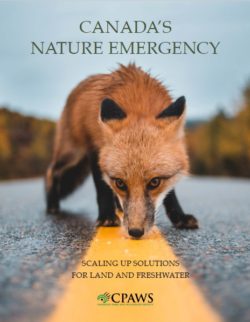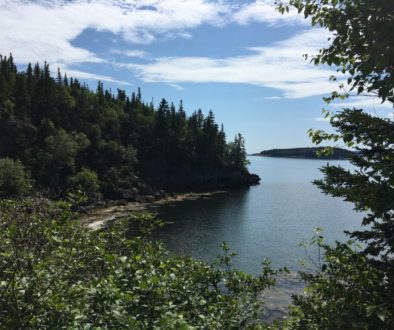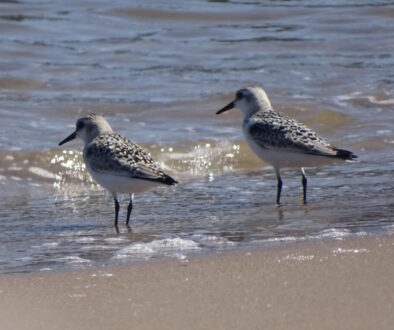CPAWS calls for urgent and ambitious action in New Brunswick to help tackle Canada’s “Nature Emergency”
July 17, 2019, Fredericton – In advance of Canada Parks Day, the Canadian Parks and Wilderness Society (CPAWS) is welcoming Canada’s efforts to meet our 2020 land protection commitments and urging governments across Canada to champion ambitious, evidence-based conservation targets to tackle the on-going catastrophic and accelerating decline of nature. In its latest report, “Canada’s Nature Emergency: Scaling up Solutions for Land and Freshwater”, CPAWS calls on Canada to promote a global goal of protecting and restoring half the earth, with a milestone target of protecting at least 30% of land and freshwater by 2030, and to commit to this at home.
Under the UN Convention on Biological Diversity, Canada has already committed to protecting at least 17% of land and freshwater by 2020. In 2018 the federal government committed over $1.3 billion for nature conservation – the largest such investment in Canadian history – and brought together public governments, Indigenous peoples, NGOs and other partners to work together towards this target. With a year and a half to go, and only 11.8% of Canada’s land base and 4.6% of New Brunswick’s protected, there is still more work to do.
“In New Brunswick, our government has expressed interest in conserving more land, and the province has participated in nation-wide meetings to discuss which actions could be taken. However, the New Brunswick government has not made any announcements about its intentions, so we are still waiting for a New Brunswick action plan,” says Roberta Clowater, CPAWS New Brunswick Executive Director.
A May 2019 assessment by the Intergovernmental Science-Policy Platform on Biodiversity and Ecosystem Services (IPBES) found that nature is declining “faster than at any time in human history,” with 1 million species facing extinction, many in the next decade, unless transformative action is taken. The study says that the primary driver of this crisis is habitat loss and degradation due to human-caused land use change.
“We are hopeful that New Brunswick will gather the political will to protect the natural areas we need to support human and wildlife communities. CPAWS NB urges the province to take long overdue action to establish a Restigouche Wilderness Waterway, and to protect our remaining old forest habitats, provincially significant wetlands, coastlines, and natural areas in our drinking water watersheds.”
The report includes specific next steps for New Brunswick, including deepening relationships and partnering with Indigenous communities, and involving New Brunswickers in a nature protection plan to protect our most special wild places, the wildlife that call them home, and the habitat that supports us all.
-30-
Read the full report here.
For interviews, contact: Roberta Clowater, rclowater@cpaws.org ; phone: 506-452-9902
About Canadian Parks and Wilderness Society
For over 56 years, CPAWS has been working with all levels of government, and other partners across the country, to protect more of Canada’s public lands and water – for the benefit of both wildlife and people. As Canada’s only nationwide charity dedicated solely to the protection of our public land, ocean and freshwater, and with chapters in almost every province and territory across Canada, we are uniquely positioned to help governments protect what nature really needs.
Roberta Clowater, executive director of CPAWS NB, interviewed by CBC NB radio program, Shift.



